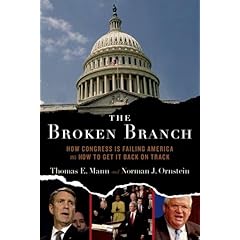It often pays to revisit Newt Gingrich, from time to time, if only now because the current candidates for the GOP nomination are not likely to put forward any bold ideas (Romney is flogging tort-reform, for instance).
SOMETHING NEW OR JUST DRESSING UP
Newt has long been saying that the State Department is "broken", but it was recently before the Senate in testimony that he called for a huge investment in the State Department (without suggesting how it might be funded), as follows:
14. The State Department is too small, too undercapitalized and too untrained for the demands of the 21st century. There should be a 50% increase in the State Department budget and a profound rethinking of the culture and systems of the State Department so it can be an operationally effective system.
Now, just when you thought that a new Conservative belief in the merits of diplomacy was what was on his mind, he also comes up with the notion that diplomats ought to be subordinated in the military chain of command:
1. Place General Petreaus in charge of the Iraq campaign and establish that the Ambassador is operating in support of the military commander.
Also, if one grabs his speech from
Herzliya (key Israeli defense conference), you come across this jab at the
DoS:
The US should have as an explicit goal, regime change in Iran, as its constitution makes them a revolutionary regime. In 2006 even the Department of State which seeks to deny the nature of reality, noted that Iran is a leading sponsor of terror. What I need is something that will be similar to Reagan’s Replacement strategy in Iran. The current unrest in Iran will facilitate this.
So, it is also a change in policy viewpoint that Newt wants "up-funded" (which is my new
diplo-military term, to keep faith with the spirit of the proposal).
Altogether, nothing new, just more spending, it appears, whereby the
DoS becomes an elements in the
DoD Chain of command ...
By the way, that is to be sharply contrasted with Senator J. Warner (wartime rubber stamp from Virginia), who was unabashedly questioning General Casey on how he and Ambassador
Kalizad interacted in the field with the new Iraqi government and making the
overt point of suggesting that the military might want to put the Ambassador in the lead, if only because questions may be coming down the road.
This is the new wartime posturing, whereby
everyone is not in the same boat, or so it seems, but thinking about "blame time", just as they do inside large corporations.

GENERALS PREPPING THE LAST WAR
Sadly, parts of Newt's testimony look like generals trying to prep to win the last war: more troops, a radically revamped US AID office, "new metrics", a National Security Budget that is closer to historic highs than historic lows, and very, very clearly a "fix" for the "inter-agency process".
Two observations, at least, on that. One, a revamped US AID office suggests that the US is going to be in a long term "war" that involves ... nation building, yes? If not, than what? Two, how can General Petreaus hope to fix the inter-agency process? If it is clearly so necessary/paramount and so clearly outside the scope of what Petreaus can do singlehandedly, then why should this General succeed, except in spite of the inter-agency process, not by fixing it?
That question is a nice segue to the next point.
WHAT HAS THE CIC BEEN DOING ON A REGULAR BASIS

I found the organizational and process recommendations that Newt made to be startling, an indication that the
CIC basically delegated the war to his minister at defense,
Rumsfeld and ignored the signs, those little thought poems from
Rumsfeld conveying that some problems might have required (or still require?) a "big rethink" so to speak, profound process and institutional re-alignment.
Here is what Newt had in mind:
2. [Petreaus] should report daily to the White House on anything significant which is not working or is needed.
3. Create a deputy chief of staff to the President and appoint a retired four star general or admiral to manage Iraq implementation for the Commander in Chief on a daily basis.
4. Establish that the second briefing (after the daily intelligence brief)the President will get every day is from his deputy chief of staff for Iraq implementation.
5. Establish a War Cabinet which will meet once a week to review metrics of implementation and resolve failures and enforce decisions. The President should chair the War Cabinet personally and his deputy chief of staff for Iraq implementation should prepare the agenda for the weekly review and meeting.
Which all begs the question of what decision making
really looks like inside the wartime Bush White House, if these things are not currently going on. I assume that Newt might reasonably be expected to know that they are not.
PUSHING DECISION MAKING DOWN THE CHAIN ACTUALLY PUTS PRESSURE ON THE TOP
There are those who maintained that a single U.S. President could handle two major military
engagements, a far flung fight against terrorism, the challenge of reshaping domestic homeland security, a re-election campaign and much else besides.
Even given processes that are optimally efficient, that's a LOT of activity to coordinate!


















